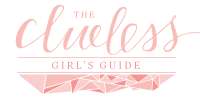I try very hard to not put lotion on my skin due to have acne prone skin, then my friend handed me a bottle of jojoba oil in my hand and sent me on my way.
Now I’ve been putting this stuff on my face for almost two months,
and I absolutely love it. It’s lightweight, gives my complexion an even
matte finish, and at the same time, feels ultra-nourishing as I lightly
massage it around my eyes, cheekbones, across my forehead, and finally
my chin. You would think that the oil would cause my sensitive skin to
break out and clog my pores, but no — it doesn’t.
The experience caused my awareness to perk up, and I started to notice
other girls talking about face oil over dinner,
online – I couldn’t escape the topic. It seemed everywhere I looked, moisturising your face with oil had suddenly become all the rage.
The Benefits of Oil:
- Oils lock in moisture and help protect the skin against environmental effects.
- Oils deliver a potent dose of nutrients
- Because your face is well moisturised, it will stop the overproduction of its own oil, and you’ll avoid that shiny t-zone look.
- Oils can be all natural, need no preservatives, and have a shelf life of about two years.
- Most natural oils are easily absorbed and won’t clog pores.
- Oils are typically ultra-healing, and great for repairing skin.
Tip: Don’t purchase oils extracted with heat or harsh
chemicals as these will cause the oils to break down, and diminish their
quality. Look for labels that say cold-pressed or CO2 extracted. Also,
stay away from anything with words like “parfum” or “fragrance.” These
are generally chemical additives, and not what you want to put on your
face. At the same time, many of today’s oils are mixed with herbs and
flowers for added benefits and scents. So long as they are natural,
you’re good. Look for “certified organic.”
The Downfall of Lotion: There has been a recent migration in
mankind’s way of thinking towards a desire for holistic products. We all
of a sudden care what we put on our skin, and what enters our bodies.
Lotion is usually made from a combination of oil and water, and the
presence of water causes bacteria to form and makes the oil go rancid.
To prevent this, all lotions must contain a preservative of some kind to
keep them from going bad. That preservative is almost never natural,
and – if avoidable – something you rather not put on your face.
Now, if you’re new to moisturizing with oil, here is a little break
down of what oils you’re likely to come across. Please note, many lines
will combine oils.
Jojoba Oil: The makeup of Jojoba oil almost mirrors that of
our skin’s natural sebum (protective barrier). It thus helps to control
the over production of sebum, won’t clog pores, and helps protect the
skin. Vitamin-wise, it’s rich in vitamin E, and is a great source of
antioxidants. Try: Caru Skincare Organic Jojoba Oil Facial Moisturizer
Almond Oil: Almond oil is great for deep moisturizing and to soothe dry or irritated skin. It’s rich in vitamins A, B, and E. Try: Aurelia Probiotic Skincare
Argan Oil: This one is popular in the anti-aging world. Argan
oil helps with wrinkles, soothes conditions such as psoriasis, eczema,
acne, and dry skin. It is rich in vitamin E, essential fatty acids, and
antioxidants. Try: Josie Maran 100% Pure Argan Oil Light
Seaberry: Seaberry makes a great protective layer. It’s packed
with omega fatty acids that create a barrier while moisturizing and
nourishing. Try: Seaberry Moisturizing Facial Oil
Rose Hip Oil: Unlike the others already mentioned, rose hip is
rich in vitamin C which makes it great for skin repair. It helps with
red marks or scarring, but is best when mixed with one of the oils
already mentioned. Try: Melvita Rose Hip Oil
Happy moisturising everyone!























No comments:
Post a Comment
Thanks for popping by! We love reading what you think, and read every comment. Make sure you leave your link so we can check your blog out if you have one! Or come chat on twitter @oxwonderland